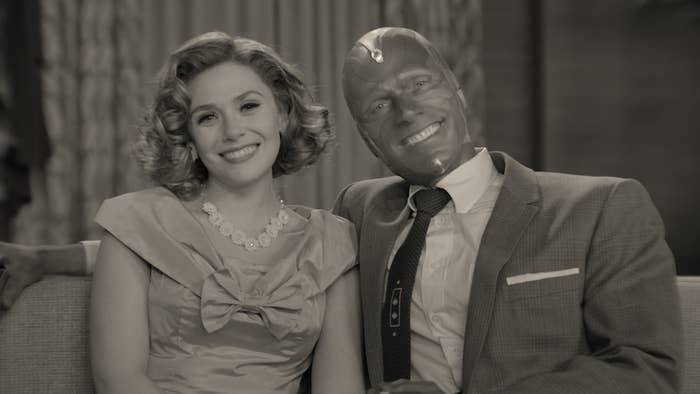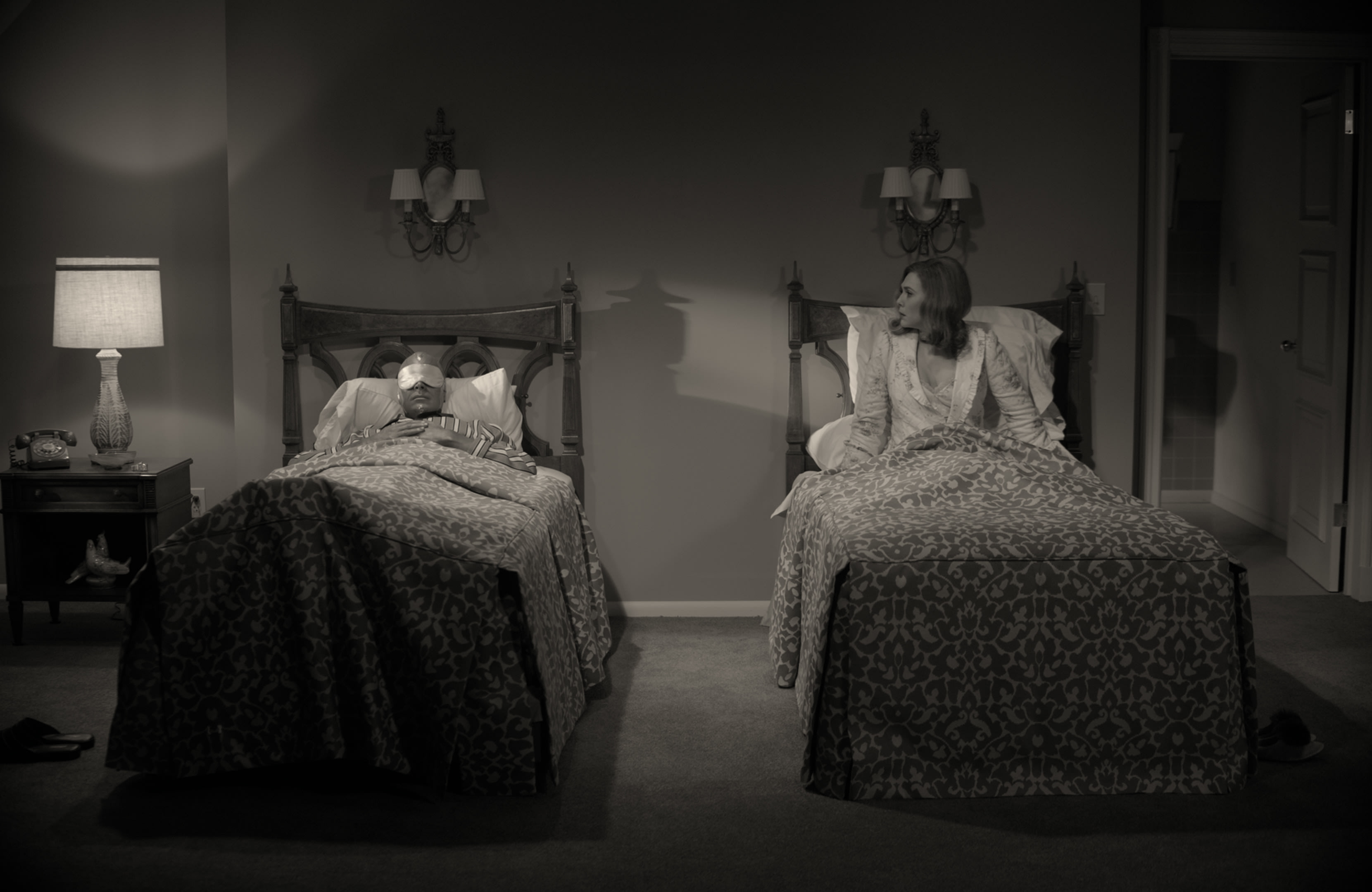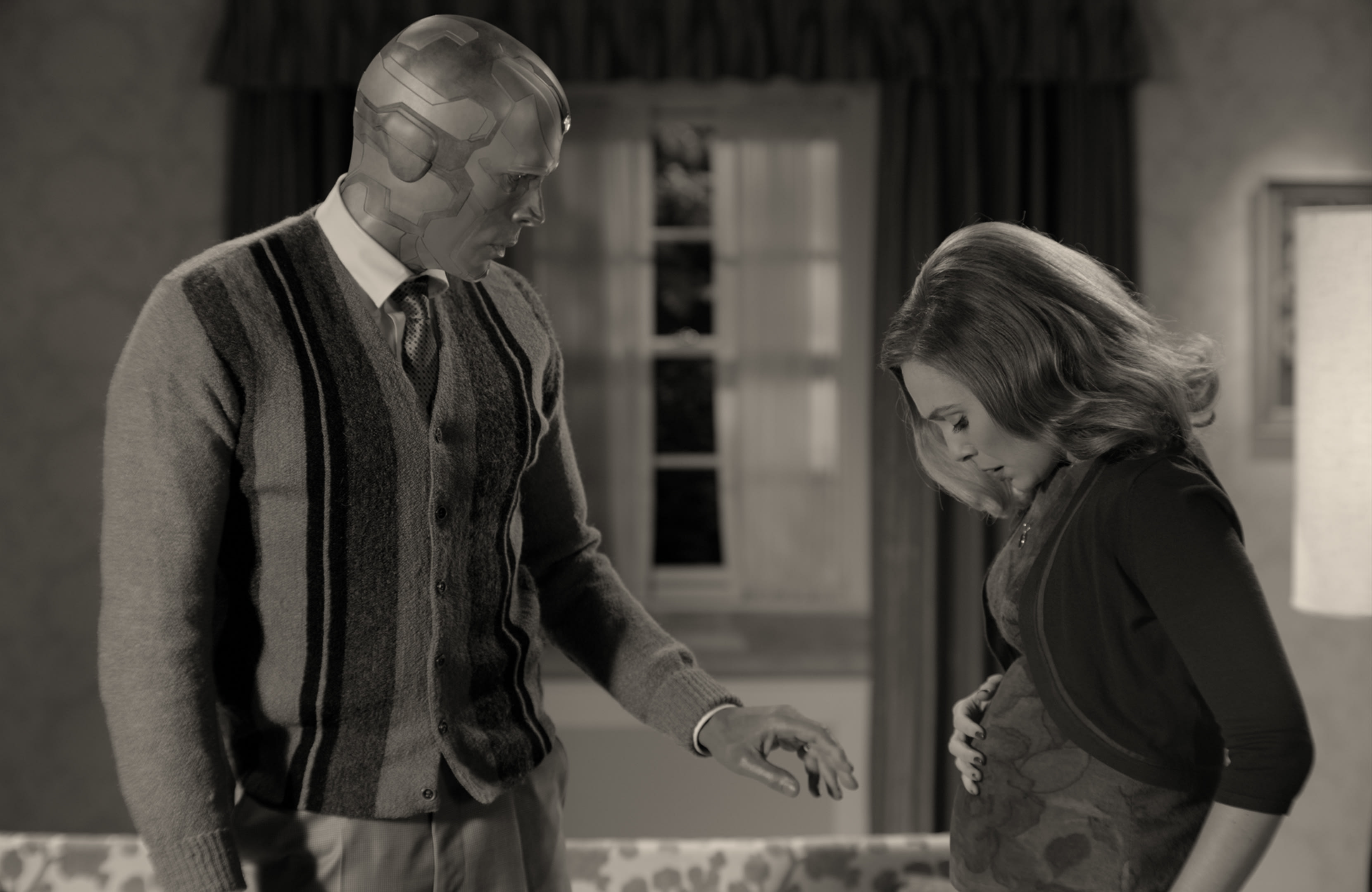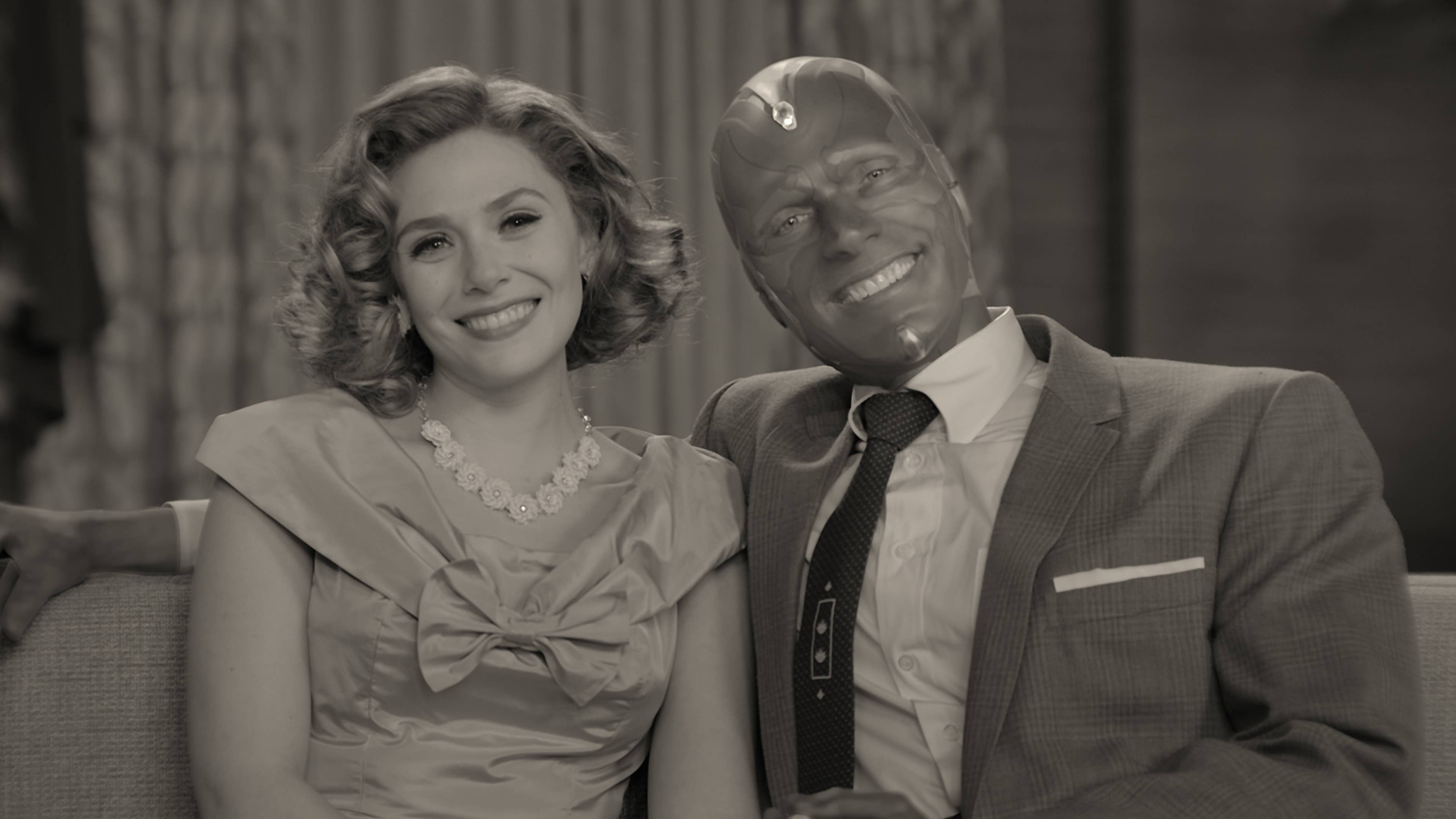
Since its debut with Iron Man in 2008, each installment in the Marvel Cinematic Universe—or MCU, for short—has intentionally linked together in service of creating a much larger world. The MCU’s interconnectedness has drawn comparisons to television—each movie in the MCU feels and looks the same. Each follows a dedicated formula. Each is overseen by a pseudo “showrunner” in the form of Marvel Studios President Kevin Feige. But what happens when the MCU actually becomes TV?
After a year-and-a-half break from MCU releases—thanks, COVID-19—Marvel’s content machine roars back to life with the premiere of WandaVision, the first of several streaming shows that will debut on Disney+ this year. Showrun by Captain Marvel co-writer Jac Schaeffer and guided by journeyman TV director Matt Shakman (Game of Thrones, Mad Men, The Boys, Succession, You’re the Worst, and Fargo, to name just a few of his credits), WandaVision sees the titular Wanda Maximoff aka the Scarlet Witch (Elizabeth Olsen) and Vision (Paul Bettany) move into the fictional suburban town of Westview, as the two settle down and get married. Sounds pretty idyllic until you remember that Vision died at the hands of Thanos in Avengers: Infinity War.
The whys and wherefores of Vision’s sudden return lie at the core of WandaVision. The series isn’t particularly interested in unspooling its biggest mystery right at the beginning. Instead, WandaVision drops viewers right into the duo’s new home life. Drawing heavily from the Bill Mantlo and Steve Englehart The Vision & The Scarlet Witch comic series of the 1980s, the two must navigate a stereotypical suburban life in Westview. However, there’s something strange about the town. Which (probably) ties into how and why Vision has suddenly returned to Wanda. And the weirdness is looking like it’s starting to spread.
Therein lies the central hook of WandaVision: Each episode references and satirizes typical domestic sitcoms of pop culture, but with a slightly askew tone. The first episode is a play on The Dick Van Dyke Show, with a touch of I Love Lucy as Vision heads off to a corporate office job while Wanda plays homemaker. Comedic shenanigans ensue as a dinner party with Vision’s boss goes awry when Wanda misinterprets the day as the couple’s anniversary. The second episode is a riff on Bewitched, with the two preparing for a magic show in the town square, wherein Wanda has to hide the fact that she’s, uh, capable of actual magic. A colorful cast of characters populates the rest of the neighbors, most notably the (absolutely aces) Kathryn Hahn (Step Brothers) and Dear White People’s Teyonah Parris.

For some, what might be surprising about the series in these early stages is just how divorced it is from the MCU. Outside of a passing mention of Wanda’s Sokovian heritage and a few stray teases (better left unspoiled) in the second episode, the show tells a tale of its own. That is to say, WandaVision focuses on being a television show instead of being a traditional Marvel movie broken up into small episodic pieces. The other aspect that will likely make or break the series—especially instead of MCU-connective tissue—is how invested you are in the pre-existing connection between Wanda and Vision. Short of Steve Rogers and Peggy Carter, romantic relationships in the MCU have left a little bit to be desired. I’m a bit dubious about the foundation that the Russos Brothers built for the show’s leads across Civil War and Infinity War. The early episodes seemingly agree; Schaeffer and Shakman spend a bit of time re-establishing and deepening Wanda and Vision’s bond.
Luckily, Bettany (shout out to A Knight’s Tale) and Olsen have an absolute blast leaning into a more comedic tone and getting to show off a different side of themselves. Olsen is a particular standout here. The movie version of the Scarlet Witch is one of the more dour parts of the MCU, so it’s a breath of fresh air to see the actress willingly dive into a comedic role; she channels the spirit of Lucille Ball and Elizabeth Montgomery rather effectively and is pretty capable of drawing a laugh from her seemingly effortless comedic physicality. Olsen’s dramatic chops are put to good use too, especially in the moments where her otherwise cheery demeanor slips and she starts to lose her grip on the reality of her new circumstances. Hahn, predictably, makes her performance feel effortless; as a noted fan of hers, I’m just delighted to have her energy on this show.

I can tell WandaVision is building towards something—partly because Feige mentioned the show would have ramifications in the upcoming Doctor Strange and Spider-Man sequels—but I think you’d be hard-pressed to realize this from these two premiere episodes. While audiences wait to see what the show’s ultimate contribution to the MCU will be, the show’s overall enjoyment will likely fall on how invested in Wanda and Vision you are. The sitcom trappings are a fun angle, sure. But this particular Marvel project—perhaps more than any other—reflects many comic book readers’ experience: You have to be invested in the characters to make it worthwhile in its early stages. To frame it in a style befitting of Wanda’s powers: WandaVision is still setting up its trick. We’ll have to wait with anticipation to see if the show can pull off something magical.


